

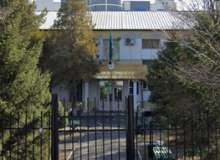
Police raided two worship services in less than a month, pressuring leaders to register with the state. Another church was falsely accused of illegally teaching children.
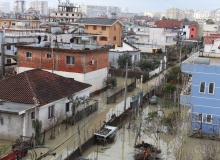
Many homes, businesses, and church buildings are under water. Local congregations are helping where possible, but the scale of the damage exceeds their limited resources.
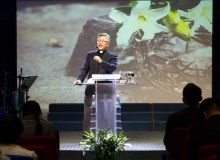
According to China Aid, these church leaders have “been placed under formal arrest on politically motivated charges after weeks of incommunicado detention, intense interrogation, and pressure on their families”.
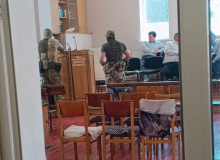
Russian police in Eastern Ukraine raided a Baptist church in Sverdlovsk during Sunday service. They filmed those in attendance and photographed books.
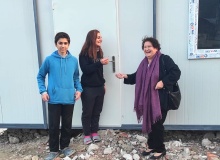
In the region worst hit by the earthquakes two years ago, Christians continue to help people rebuild their lives and overcome trauma in the aftermath of the disaster.
.jpg)
Tearfund, Evangelical Alliance and other organisations reject what they describe as a “cruel” and “unwise” decision.
.jpg)
Europe now watches aghast as a brazen, unbridled imperialism makes claims on Panama, Canada, Greenland and Gaza. Trump joins those wolves in sheep’s clothing he admires like Putin, Orban and Wilders, masquerading as defenders of the faith.
.jpg)
One reader, who teaches at a seminary in Asia, told me that a student enrolled online had to drop out to care for his pregnant wife, who was living in a Thai refugee camp where the hospitals shut down due to the US aid cutoff.

A Baptist church in Russian-occupied city of Melitopol has been raid 3 times in a year by armed, masked men, and its pastor accused of "illegal missionary activity”.

The aid is welcomed. We now need to see this funding provided quickly, targeted well, and used effectively for the Special Educational Needs and Disabilities pupils.
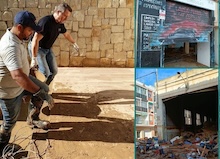
Three Christian managers from Valencia share how they are turning the nightmare into opportunities to serve others in the aftermath of the floods.
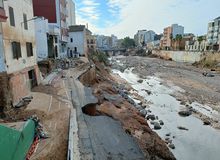
In addition to urgent aid for the flood victims in Valencia, other initiatives emerge, such as a project to furnish affected homes. “The Gospel provides a refuge”, says its coordinator.
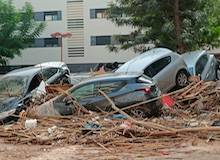
At least 213 people have died and dozens have disappeared in various towns in the regions of Valencia, Castilla-La Mancha and Andalusia.

At least 630 religious places have been damaged, says a report of Mission Eurasia. Russian soldiers raid churches, ban religious activities and persecute faith leaders.
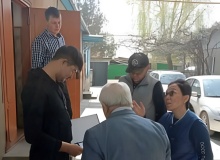
In just 2 moths, police raided 4 worship services and issued 7 fines for leading and participating in “illegal missionary activity”.
.jpg)
The war has caused 5 million refugees since the Russian invasion began on 24 February 2022. Organisations such as GAiN and LIO have sent dozens of aid trucks and are working with Christian partners on the ground.

Pastor Hugo Márquez settles what he describes as fake media controversy over aid to evangelical soup kitchens.
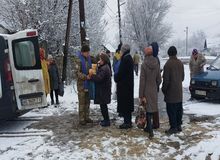
European Mission Fellowship has raised almost £2 million since the invasion started. All the money is used “for humanitarian support with a strong gospel focus and motivation”.
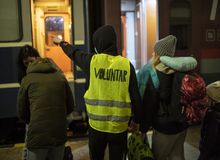
The Swiss Protestant Aid organisation reports that four other employees were injured in “a brutal attack”, which is under investigation.
.jpg)
In an interview in Germany, Franklin Graham talks about the vision of his evangelistic ministry and addresses criticism of his political support for Donald Trump.
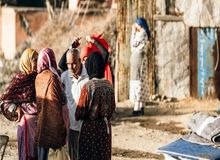
Several groups in neighbouring Spain have set up channels to give. Christians in Morocco join the efforts to support survivors.
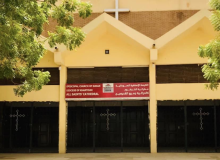
The Anglican cathedral and an Episcopal church in Khartoum were also raided by gunman, while an evangelical church was partially burned.
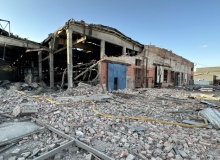
Matthias Schöni, director of the Swiss Licht Im Osten, says a new truck with help is already on its way to Ternopil. After the attack, “we have received many food and financial donations”, he says.
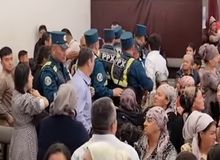
Local officers stormed into the church and “brutally beat church members, used electric shock prods to incapacitate them”, denounces Forum 18.
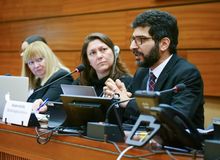
“We are not against sanctions but for human rights”, says the World Evangelical Alliance representative at the UN Human Rights Council.

Las opiniones vertidas por nuestros colaboradores se realizan a nivel personal, pudiendo coincidir o no con la postura de la dirección de Protestante Digital.